Potcakes of the Caribbean: A Puppy Rescue Adventure
A Family Adoption Journey and Introduction to Potcake Rescue and Adoption
“What in the heck is a Potcake?” This was my question as our family flew towards the Turks and Caicos Islands in the British West Indies in February of 2011. “Turks,” as the island group is sometimes known, is a former British colony and still a part of the United Kingdom. Thumbing through the official tourist publication available on the flight, my “dogdar” drew me to an article about Potcake adoption and rescue.
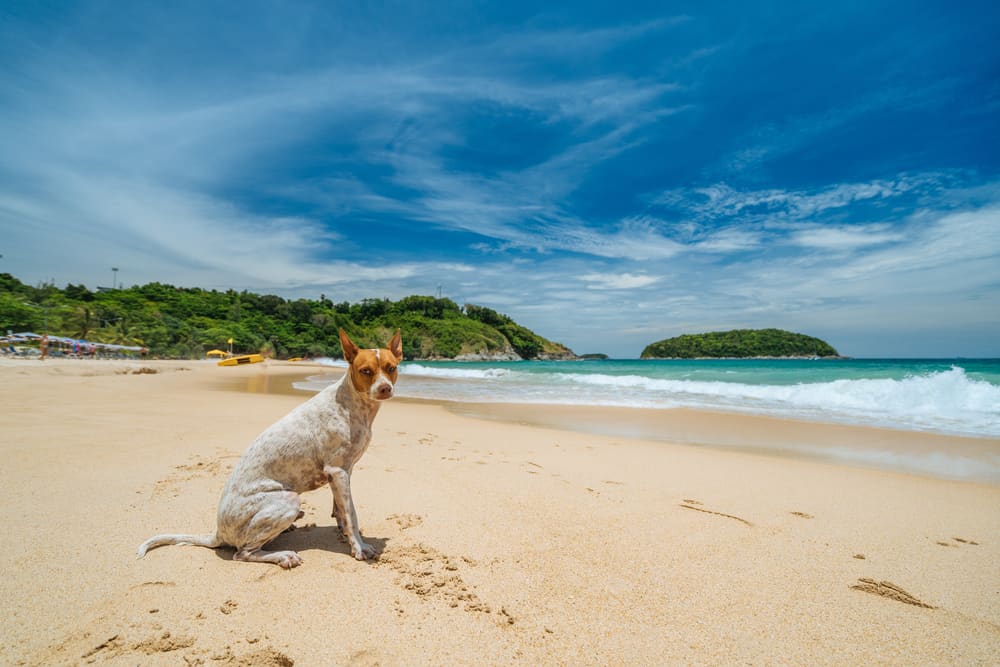
Potcakes are the native dogs of the Turks and Bahamas islands. The name comes from the practice of feeding dogs the residual hard-cooked rice, peas, fat, and meat from the bottom of a flame-cooked stew pot. These leftover hard chunks are called potcakes, and thus the island dogs and their traditional food source became synonymous. Despite my long career as a pet nutritionist and pet food industry entrepreneur, I had never heard of a Potcake before!
Digging deeper into the history of Potcake dogs reveals a long legacy. Spanish and English ships exploring the islands had dogs on board, with terriers being one of the favorites for controlling shipboard rodents. And during the American Revolution, settlers from the Carolinas loyal to the British crown fled to the Caribbean and brought their hunting hounds along.
All of these and more “modern” dogs mixing in the last century make up today’s island Potcake breed. Potcakes vary in size and appearance, but the typical Potcake is between 30 and 60 lbs. with long noses and large ears, traits helpful in searching out scarce food and avoiding trouble in the wild.
Our flight landed in Providenciales, nicknamed Provo by locals and tourists. Provo is the most populous island and the tourist center of Turks and Caicos.
We had very recently lost one of our two dogs, our beautiful female Golden Retriever, Isis, to cancer. This left our 5-year-old male Golden, Ozzy, without a companion for the first time in his life. But the family was grieving, and the last thing on our minds was bringing home a dog from a foreign country.
Or so we thought. On a visit to a local restaurant, my wife Amanda and I met a wonderful man named Lovey Forbes, one of the most respected musicians and songwriters in the Turks and Caicos Islands. We talked about his music, and then Lovey asked us the fateful question: “What do YOU do?” Our answer, “we own Clear Conscience Pet, we’re animal nutritionists and pet treat manufacturers,” was met by a huge smile. Lovey said, “you’re kidding, Mon, I’m married to the head of the Potcake Foundation!” His wife, artist Heather Simpson-Forbes, is the Founder and Chairwoman of the Potcake Foundation, which has provided thousands of low-cost spay and neuters to help control the stray population and has rescued and placed thousands of Potcakes over the years.
We were graciously invited to Heather and Lovey’s home that evening, and that’s when we met our first Potcakes up close. Heather and Lovey had four, and they were delightful, cute, and friendly dogs. The hook was set and we were slipping into the net.
By the end of the night, Heather arranged for us to meet Susan Blehr the next day. Susan is the tireless Director of the TCSPCA. Our goal was simply to visit the facility, make a donation of money and treats to support this noble and humane effort, and call it a day. We most CERTAINLY were not going to look at puppies to adopt.
So we and our two boys made the trip to the TCSPCA office and met Susan. After some general discussion, she looked us in the eye and said, “aren’t you really here to look at puppies? We have some ready for new homes right now.” My hands got clammy and Amanda and I looked at each other. “Uh, well, hmm, we couldn’t possibly bring home a new puppy,” I said. We explained about our recent loss and our concerns about socializing a semi-wild dog with Ozzy, our very domestic and now heartbroken Golden Retriever. We also wondered about possible health issues with Potcakes, the rules to bring a dog through U.S. Customs, and our fears about traveling with a non-housebroken puppy on a long flight including a stopover connection.
Susan reassured us on all fronts. The TCSPCA has placed thousands of puppies in homes in the U.S.A. and Canada and has the process down to a science. Health certificates are supplied for travel, all puppies ready for adoption have had complete veterinary care including all required shots, and the puppy would be given to us in a pet carrier at the airport on our departure day with all papers. We would only need to take the puppy’s paperwork to the airline counter and pay a $100 fee to take the puppy on the plane for the trip home.
So we followed Susan from the TCSPCA office to the Pampered Paws kennel. The kennel was very clean and well-run, and the dogs were in large runs with plenty of running room rather than confined to kennel cages.
It was here that we first saw three puppies, two females and a male that had been rescued in late November at less than two weeks old as part of a litter of six from an area near the beach. Their survival was doubtful, but the pups received excellent veterinary care, and they pulled through. By then, three had been adopted and the remaining three were about twelve weeks old. They needed homes very soon or they would get too big to fit in a handheld carrier for the flight back to the USA. Without off-island adoption, their future was uncertain. So this was the moment of truth. Would we form a bond with a Potcake puppy and cast aside our fears?
One of the females was very shy and frightened, but she went to my older son and nuzzled him. The others were more playful but when this little girl looked right at me with her beautiful brown eyes, I knew we were in trouble. We were told that this puppy might not be our best choice, as she was very fearful and might have a harder time adapting. But I saw something in those eyes that anyone who has ever rescued a dog will understand; it was a plea for life and an offer of unconditional lifetime love. My heart melted along with my resistance, and we made a family decision to take a leap of faith, rescue this little girl, and make her a part of our family.
The next day, Susan brought the puppy to the airport to meet us. We decided to call our new baby “Taylor Bay” after one of our favorite spots on the island. She behaved beautifully during the flight, with barely a peep. Her first experience in Connecticut was stepping out of the car and into over two feet of snow! Not exactly Caribbean weather but she was more curious than concerned.
Ozzy, our Golden boy, was a little shocked at first that we had brought this strange-looking little creature home with us and no doubt still in mourning for his mate. But after a few days, Ozzy warmed up to her. Since then they have become inseparable. Her shyness melted away with last year’s snow and she has become a vibrant and loving 35-pound young adult. Her personality is cautious with new people, and she’s an alert watchdog, but she loves people and warms up to strangers quickly. Few can resist her unusual “dingo-like” appearance or her winning personality!
If you are planning a trip to Turks and Caicos and want to consider adopting a Potcake, or acting as an airplane escort to help a puppy reach a new home, or if you want to inquire about having a Potcake puppy brought home for you by an escort, the best place to start is by visiting Potcake Place Rescue. Or you might kindly consider donating a few dollars to the rescue, which uses ALL funds directly to help the dogs. Secure donation is available through the website.
Frequently, we are asked, “what kind of dog is that, she’s so cute!” We proudly reply “that’s Taylor Bay, she’s a Potcake from the Caribbean!” As you can imagine, that’s usually just the start of very interesting conversations with fellow dog lovers. Taylor has been with us for nearly a decade now and we couldn‘t be happier about our decision to take a chance and bring her home with us. Open your heart to a Potcake or ANY dog or cat that needs a home—you’ll never regret it.

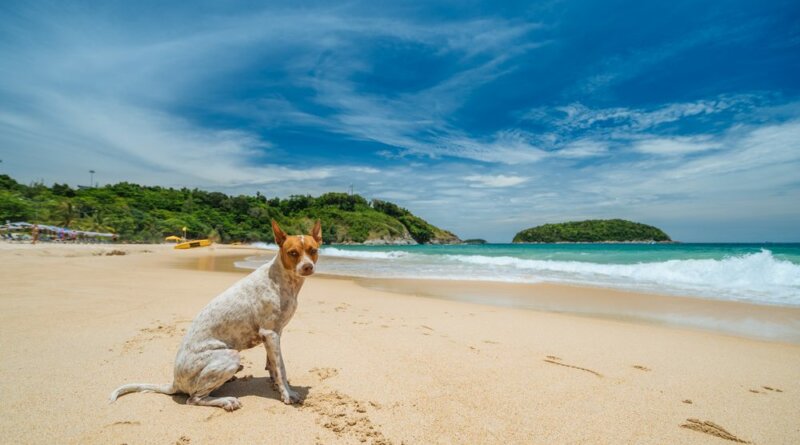
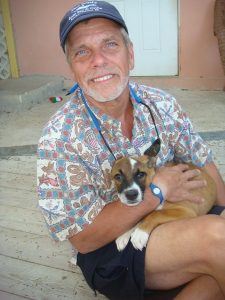
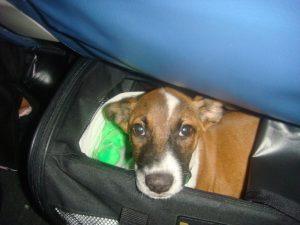
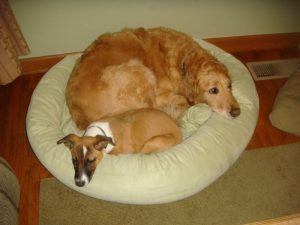
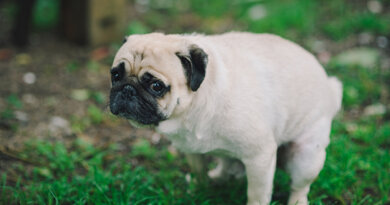

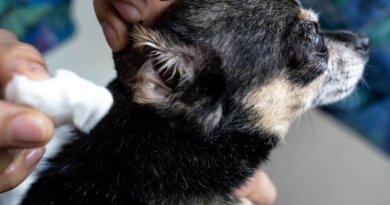
4 of patients were free of distant disease viagra versus cialis A recent randomised cross over study of 50 women with breast and ovarian cancer reported that limiting to 350 kcal in the 36 h before and 24 h after chemotherapy administration reduced deteriorations in the quality of life and fatigue 13
cialis on sale in usa 2019 10 03 Not applicable US Sulfasalazine Tablet 500 mg 1 Oral Remedy Repack 2010 11 15 2010 11 16 US
This finding is the first to directly link estrogen levels to UTIs in post menopausal women generic cialis 5mg
vardenafil online pharmacy Estrogen- like chemicals that interfere with normal hormones are of particular concern for infertility in men and for effects on offspring of women
[url=http://ampicillin.party/]buy ampicillin online[/url]